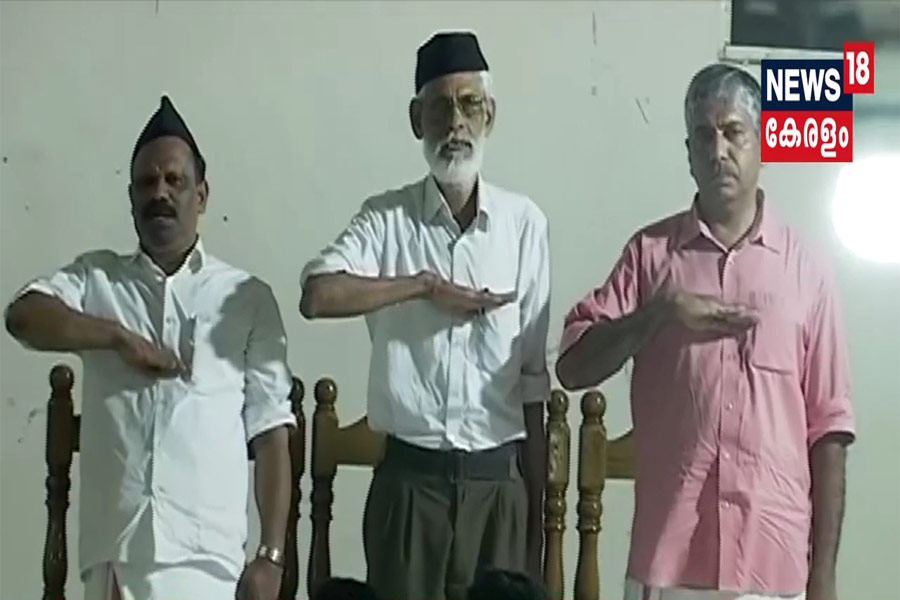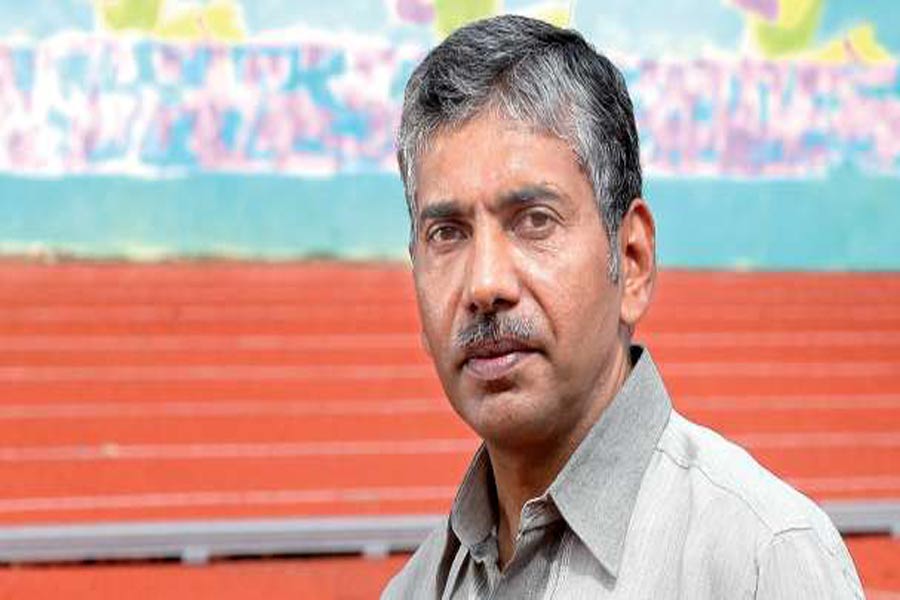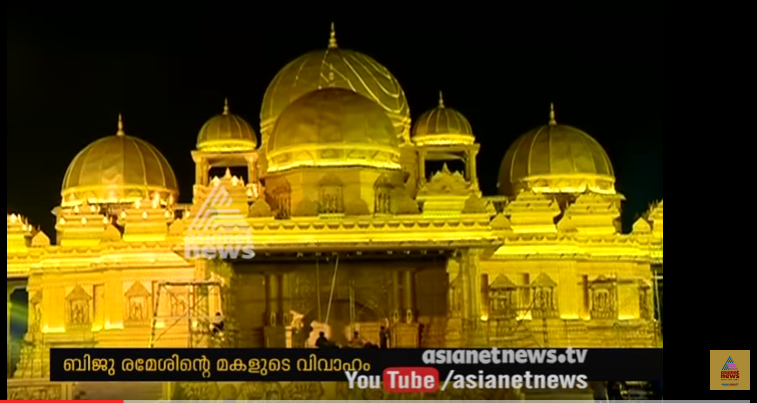If anyone’s a riddle wrapped in an enigma and speaks in parables, that’s DGP Jacob Thomas. Though it’s not easy to sketch a brief bio of him, I have attempted the arduous task. The self-proclaimed anti-corruption crusader is back in the news as the Central Administrative Tribunal (CAT) has revoked his suspension and directed the Kerala state government to reinstate the officer forthwith.
Jacob Thomas has been under suspension for more than eighteen months now. The DGP was first suspended in December 2017, after he unleashed a scathing attack on the Left Democratic Front (LDF) government’s poor response to the Ockhi disaster. In its suspension order, the government had stated that it found Thomas’ statements at a public meeting on December 9, 2017 ‘inflammatory in nature’.
The suspension was then extended by another six months, now in the name of writing a book which didn’t qualify as a “literary work”, for breaking service rules. Just as Jacob Thomas was due to complete his suspension period, a vigilance case was foisted upon the officer in December 2018, on charges of corruption into the procurement of cutter suction dredger when he was the Director of Ports during the 2011-12 period.
The CAT found merit in the officer’s plea that these allegations were already gone into previously and the officer had been cleared of corruption in the case—thus revoking his suspension. Needless to say, the state government has been vindictive to the officer to the extent that they wanted the officer to remain suspended through his remaining term (one year) on some flimsy ground. Curiously, the state government did not entertain the officer’s plea for voluntary retirement to contest the Lok Sabha elections under the aegis of Twenty20, a CSR-initiative of a corporate group.
Jacob Thomas had endured a tough time during the previous United Democratic Front (UDF) government led by Oommen Chandy. He was shunted out of the Vigilance and Anti-corruption Bureau (VACB) and the Fire and Rescue departments. Upon the Left government taking charge, the officer was immediately brought back to head the vigilance department but soon ran into problems with the government despite Chief Minister Pinarayi Vijayan’s unstinted backing.
After a couple of stinging High Court observations against the officer for overstepping his authority, Jacob Thomas was sent on leave in March 2017, after serving ten months as Vigilance Director. He was brought back into service in June 2017, as head of the Institute of Management in Government (IMG), by assigning a separate cadre.
While Jacob Thomas was on leave, the Supreme Court had ordered the reinstatement of DGP T P Senkumar as the State Police Chief (SPC), after Pinarayi Vijayan had unceremoniously dumped the former top cop to make way for a yes-man in DGP Loknath Behra shortly after assuming charge as CM. And as T P Senkumar took over as the SPC again, Behra headed the vigilance department. Behra continued to hold the additional charge of the vigilance department even as he returned as the SPC following Senkumar’s retirement.
It would seem that the relationship between Jacob Thomas and the Left government went south during this phase culminating in the officer’s outburst against the government.
Although the LDF and Jacob Thomas have been at daggers drawn for the past one and half years, the officer enjoyed Chief Minister Pinarayi Vijayan’s confidence prior to that. In the first year of his Chief Ministerial term, Jacob Thomas was Pinarayi Vijayan’s blue-eyed boy, burnishing the anti-corruption credentials of the Left government; but it wasn’t long before conflict of interests began to crop up.
For instance, the LDF had pledged to get to the bottom of the bar bribery scandal against the late K M Mani and even won the assembly election on that plank. But Mani left the UDF within three months into Vijayan’s tenure to get into a fleeting relationship with the LDF. The nepotism charges against E P Jayarajan, the No 2 in the Cabinet, proved to be another thorn, and soon, many top bureaucrats were on Jacob Thomas’ radar.
The officer would have probably been fine if he had gone about his work systematically and with discretion. But some of his actions began to reek of vendetta and settling of personal scores. When senior bureaucrats (and additional Chief Secretaries) like K M Abraham, Paul Antony and Tom Jose came under the scanner of the vigilance department, many in the IAS fraternity were alarmed, and threatened to go on mass leave. A source close to the Chief Minister says:
“It seemed Jacob Thomas was acting vindictively, and without any sense of propriety, to the extent of riling up the IAS Officers’ Association. He is known for nurturing grievances from the past and exacting vengeance upon getting an opportunity. The Chief Minister was exceptionally fair to him. You can accuse Pinarayi Vijayan of many things but he was extremely fair to Jacob Thomas, and did everything he could, to stand by this officer”.
But how does he explain the suspension and the rank vindictiveness of the state dispensation towards the officer?
“Of course, once the relationship soured, things went downhill. But do you know one thing? Pinarayi Vijayan had backed him to the hilt at one point even against the wishes of his party and the officer acted like Bhasmasur”.
A prominent political commentator added:“There was a pattern to many of these cases mounted by the vigilance department. It seemed that a particular RTI activist was acting as someone’s tool to file random complaints so that the vigilance could go after them.”
This writer remembers having a conversation with Jacob Thomas back then and asking him if he had acted too wantonly and indiscriminately in hindsight—to which the officer had replied in the negative. But his going on leave was triggered by a couple of scathing observations by a High Court Bench “for overstepping his Constitutional bounds to establish a Vigilance Raj in Kerala”. The Bench had also interestingly questioned his continuance as the VACB chief, although it was not binding on the government.
A close friend of Jacob Thomas argued: “The observations were made by Justice Ubaid, and this judge is known to be close to some politicians.” But senior journalist Roy Mathew counters these assertions:
“If that is the case, Jacob Thomas should speak up himself rather than doing it on the sly. When the media asks him questions, he speaks in parables. Does he think he is Jesus Christ to speak in parables? Why can’t he answer questions directly? It’s not as if he is not articulate. For a direct yes or no question, he often retorts with a counter question or breaks into a monologue. He should have the guts to say why and how his personal equation with Pinarayi Vijayan soured. He is just a show pony. He himself is not above board if you go by the case against him in the benami land deal. Can you recall a single instance of Jacob Thomas successfully prosecuting someone corrupt? Then he goes beyond his mandate to meddle into supposed prosecution lapses in the Jisha case thereby threatening to scuttle it—he seems to me like a publicity-hungry individual whose anti-corruption crusade is mostly media hype”
An anti-corruption crusader and a ‘Benamidar’?
Apart from the observations of the Kerala High Court, another trigger for his going on leave on March 31, 2017 could have been a Times of India (TOI) investigative report on dubious land deals by Jacob Thomas in Tamil Nadu published the same month (March 14). It was reported that Jacob Thomas owned 50 acres of land in Rajapalayam (near Virudhunagar) but the strange thing about this was that the address furnished by the officer in the documents was that of a Kochi-based Travel company.
The officer had refused to clarify the matter at the time instead getting his friends to vouch for his honesty and integrity. Baby Thomas, promoter of the Kochi-based ISRA Agro Tech Systems Pvt Ltd, whose address was furnished by Jacob Thomas for the purchase of the land, had confirmed to TOI in 2017 that it was the officer himself who bought the property on behalf of the company. Baby Thomas’ version was similar to Jacob Thomas’ claim in the book that the officer had “no links” to the company but had only lent his name for the purchase of the property.
A story from The Hindu Businessline from 2001 describes Jacob Thomas as an “honorary management consultant” of ISRA Agro Tech Systems Pvt Ltd. An “honorary” post as management consultant of a private company isn’t something that Jacob Thomas could have held without breaking service rules, say people well-versed with service rules and procedures.
After refusing to clarify the matter in the wake of the news reports in TOI and The New Indian Express, Jacob Thomas finally addressed the matter in his autobiography, Swimming with the Sharks, where he explained how his name (and his wife’s name) was allowed to be used for the purchase of the land and the circumstances that led them to put their signatures on the documents. But it isn’t still clear how Jacob Thomas’ name on the property deed remained unchanged for two decades, even if one were to take his claims at face value.
And what happened to this land eventually? In February 2018, the judicial first class court held Jacob Thomas guilty of holding benami property under Benami Transactions (Prohibition) Act (1988) while considering a petition filed by T R Vasudevan. The court, however, expressed helplessness in taking cognizance of the case as the petitioner was a private individual and didn’t have the locus to pursue it without being authorized by the government or the Central Board of Direct Taxes (CBDT). More importantly, the court observed that Thomas was a benamidar and held the land deal ‘a benami transaction’ as defined by the act.
The Income Tax authorities soon swung into action and served Jacob Thomas with a series of notices beginning from June 2018 pertaining to this property. Since Thomas didn’t accept three successive notices sent to his address, the Income Tax department finally confiscated the land in Jacob Thomas’ name in October 2018.
The anti-corruption crusader’s troubles didn’t end there. In late 2016, while he was still serving as the VACB chief, the Karnataka Forest Department served an eviction notice to his wife Daisy Jacob for a 150 acre property in her name in the Kodagu region. The case was that the land was part of the Pattighat reserve forest since 1901. The property had an estimated value of Rs.18.12 crore and yearly returns of 35 lakh, according to the property statement submitted to the Ministry of Home Affairs by Jacob Thomas. Daisy Jacob had then approached the High Court of Karnataka, which issued a stay on the eviction notice issued by the Forest Department. The current status of this case is unclear.
Jacob Thomas’ latest returns pegged his assets at 38 crore, easily making him the richest serving IPS officer in the state. Not too bad for someone coming from a humble background you’d think.
The fluctuating politics of Jacob Thomas
Politically, having burned his bridges with the UDF and now with the LDF, the officer began to slowly veer towards the Bharatiya Janata Party (BJP) and the Rashtriya Swayamsevak Sangh (RSS), which reflected in the stand he took on the Sabarimala issue, for instance.
However, in the run-up to the Lok Sabha election, while remaining under suspension, Jacob Thomas suddenly applied for voluntary retirement to contest elections as a candidate of Twenty20, a CSR initiative of the Anna-Kitex group. It seemed like a strange decision for many reasons. First of all, the corporate group had gained notoriety for getting its candidates elected to Kizhakkambalam Panchayat under the aegis of Twenty20 and, artfully running a parallel administration in the region with a distribution of heavily-subsidized household rations and jobs in their factories as bargaining chips. Either Jacob Thomas was too ignorant of it, or as some people suggest, he had a bigger objective in settling a score with his potential opponent in the constituency—Benny Behanan of the UDF.
With the state government refusing to grant VRS, the contest never happened. And post BJP’s win in the general election, Jacob Thomas was seen ingratiating himself with the BJP. He was seen in attendance at an RSS function in Kerala, and made trips to Delhi to meet with senior BJP leaders. In a startling revelation, Jacob Thomas claimed he had been working in close coordination with the RSS for the past 25 years. A week back, in an interview to Marunadan Malayali, a sensationalist news portal, he dealt with a question on RSS’ purported involvement in Mahatma Gandhi’s assassination by retorting: “What about Jallianwalla bagh? Do you ostracise the British for that today?” The poor logic and dumb comparison aside, it was clear that he was unabashedly taking a pro-BJP/RSS line.
It was in this backdrop that his suspension was suddenly revoked by the CAT. His immediate response on Mathrubhumi News channel was equally baffling, as he expressed his interest to work for voluntary organisations than getting back to service—only to make a U-Turn and shoot off a letter to the state government the very next day to act on the CAT directive and give him a posting forthwith.

And even in the wake of the revoking of his suspension, Jacob Thomas continued to exalt the RSS when he claimed that a lot of intellectuals in Kerala would support the “world’s largest voluntary organisation” if they cared to learn more about the Hindutva outfit. The other day in Trissur, he made some convoluted statements on the ‘Jai Sri Ram’ chant to further establish his political slant: “Have we come to a situation where we cannot even chant Jai Shri Ram? It’s high time we used the chant, that too with more vigour”, he stated.
At a meet-the-press organized by the Press Club in Thiruvananthapuram on August 2, Jacob Thomas continued to bat for the BJP/RSS and did not rule out joining politics, although he did not respond to a question on the possibility of his contesting Assembly by-elections. A former DGP, on the condition of anonymity, said: “If Jacob Thomas comes back to service, it will be the first time someone with an avowed BJP/RSS slant will serve in the Kerala administration.”
Tailpiece: The news of Jacob Thomas’ suspension being revoked by the CAT broke on 29 July, and it was splashed on the front pages of all the major dailies in Kerala. However, Malayala Manorama did not see fit to carry the news on the front page or in the inside pages; it was relegated to a small two-column news in the last page of the daily. A call to the Copy Editor of the daily evoked a casual response. Since the daily is not exactly known for its friendliness to the Marxist dispensation, many rumours flew thick and fast about the reasons behind the relegation of this important development, not least a former Chief Secretary’s familial ties with the proprietors.







